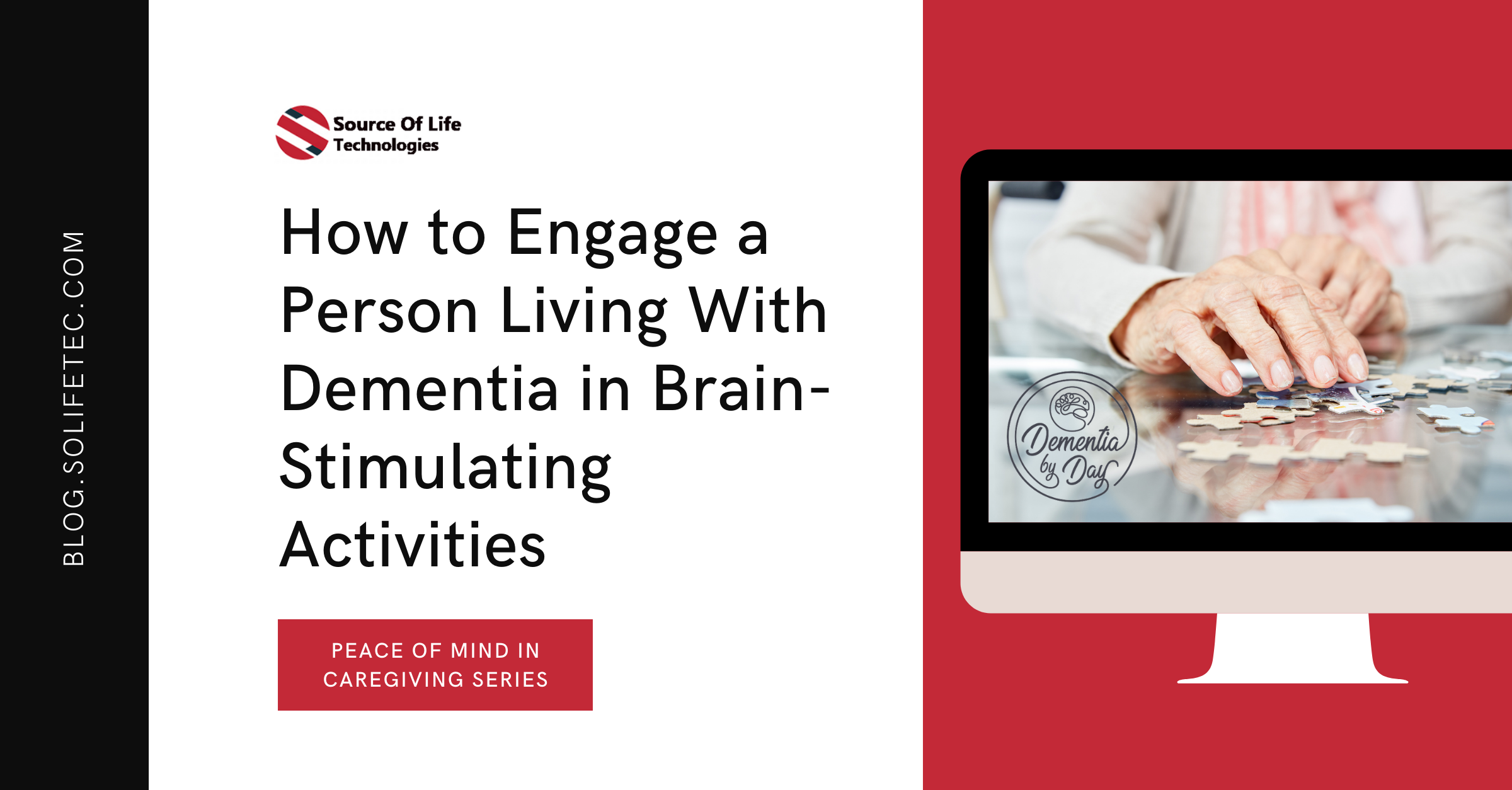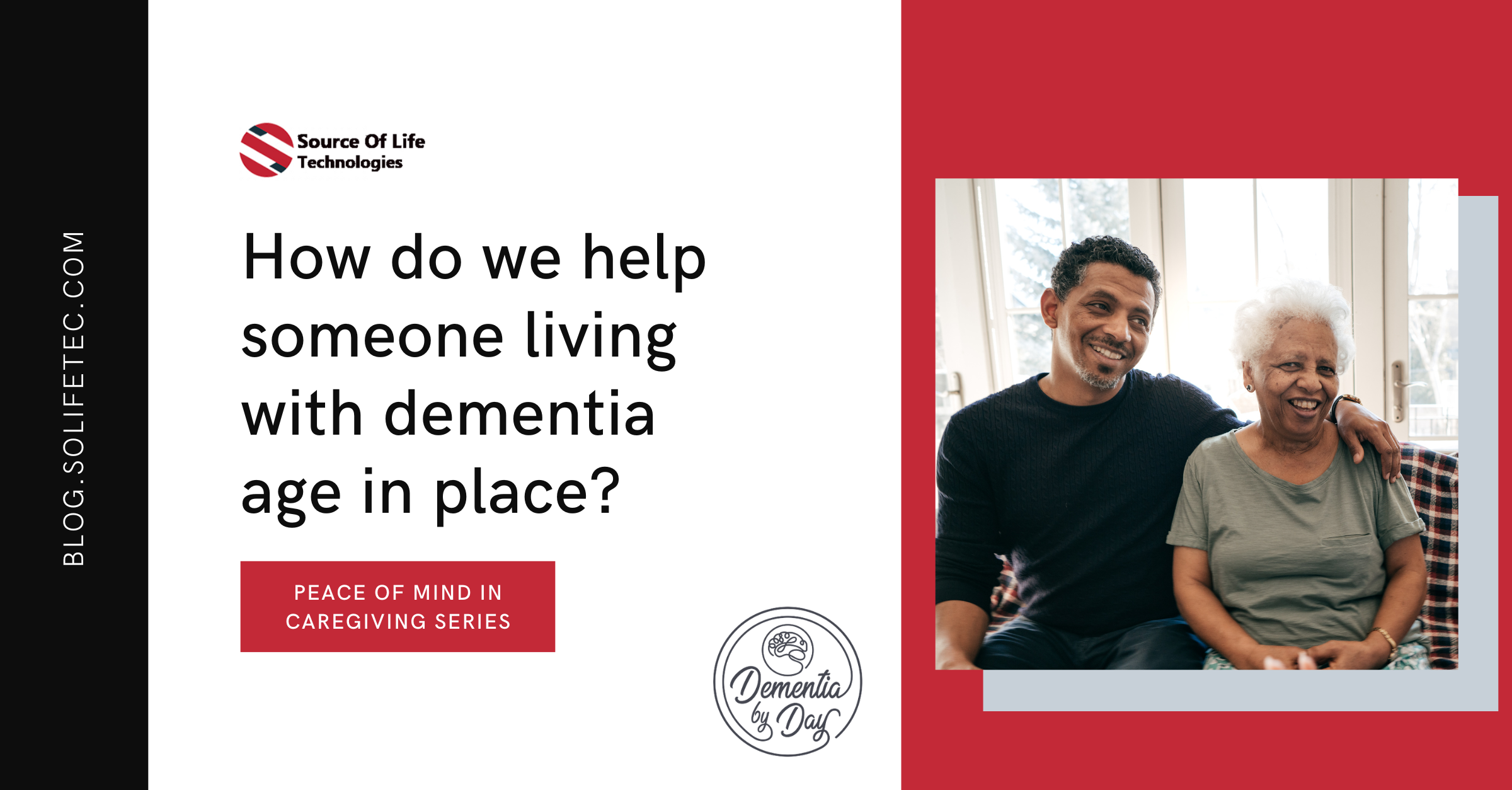Peace of Mind in Caregiving Series: How to Engage a Person Living With Dementia in Brain-Stimulating Activities

By Rachael Wonderlin, Dementia By Day, Consultant to Source of Life Technologies
I’m here to confirm that it is possible to enjoy life after a dementia diagnosis. How do I know that for sure? I have talked to thousands of caregivers and met countless individuals living with dementia, and programming and engagement are always at the top of the topic list. Not only is it possible to find something that a person living with dementia will enjoy doing, but it’s also imperative: engaging your brain, even after a diagnosis, helps keep you healthier, longer.
Finding the Right Type of Engagement
Engaging your brain doesn’t have to mean learning a new language, playing chess, taking a course, or even utilizing one of those websites that claim to be brain or memory-enhancing. The key to brain engagement is actually doing something that you enjoy doing: for example, I’ve been teaching myself German on Duolingo (the language learning app) but that’s only because I enjoy it. If I didn’t like it, I wouldn’t stick with it, and we would be back to square one.
Finding the right type of engagement is key! What did that person like to do before their diagnosis? I can almost guarantee that they still like their hobby or activity, but just need some help getting started with it. The key here is not to say, “Don’t you remember? You always loved painting!” but to say, “Hey mom, I need some artwork here for the house. Instead of running out and spending a ton on new paintings, could you help me? Could you paint a picture of the garden?”
Asking for help allows the person to feel useful, necessary and wanted.
Initiating Tasks
As you’re well aware by now, dementia is not just a memory problem: there are many symptoms associated with different causes of dementia. One issue you may have run into is task-initiation—people living with dementia struggle to initiate tasks, especially past an early stage of their disease.
She’d left her father a “to-do” list that included tasks around the house. He was home, by himself, for a good deal of time during the day. When his caregiver was there, Max had the help around the house that he needed. When she left, though, Max was also left to his own devices. Max’s daughter came home to find him, head tilted back, asleep in a chair. The closet was still as she’d left it.
People living with dementia have trouble starting tasks because the “initiation” of a new task is too complicated. You know this if you’ve ever had to help someone with dementia get dressed: what you’ll notice is that you need to “cue” each new task before they start it.
So, it’s not that Max didn’t want to help his daughter: he did! He just couldn’t figure out how to get started with the task.
The End Result Isn’t the Goal
When I was a Dementia Care Director, I often painted with my residents. I’d set up a vase of flowers on the table and have everyone paint what they saw, or ask each person to paint a memory of what their first home looked like. While I was always excited to see what the paintings would look like, I focused on how the process was coming along, not on the actual outcome of the activity.
Ask yourself:
- Does the person seem to enjoy what we’re doing?
- Do they appear to be focused on what’s happening?
- Are they smiling? Talking? Looking confident or pleased?
- If the answer to all of these is “yes,” then you know this is a good activity.
It’s never about the outcome when someone has dementia–it’s all about the process. The desire to feel useful never goes away, and it’s really rewarding to get people living with dementia involved in programs that help them feel like they’ve accomplished something.
Engaging Someone Living With Dementia
Our goal in engaging a person living with dementia is to help them enjoy the life that they’re living. Our goal is to help ourselves, as caregivers, enjoy our lives with them. Our goal is not to “fix” or “reverse” the dementia diagnosis. There is no current research or science available to suggest that we can fix someone’s dementia. However, we can slow the progression of the disease by engaging the brain with programming and socializing.
When you find something for the individual living with dementia to do that they enjoy, the reward goes beyond simply brain engagement.
From senior care fall strategies to online engagement and mobile app opportunities, healthcare shouldn’t be reactive - it should be proactive. Doors have been opened to on-demand healthcare and it turns out the overwhelming majority of patients, physicians, families and therapists want to continue down that path. The decision to modernize your senior care strategies is a big one and doesn’t happen overnight. Talk to the Source of Life Technologies team for the guidance and direction you need to make the change in your organization or home.

